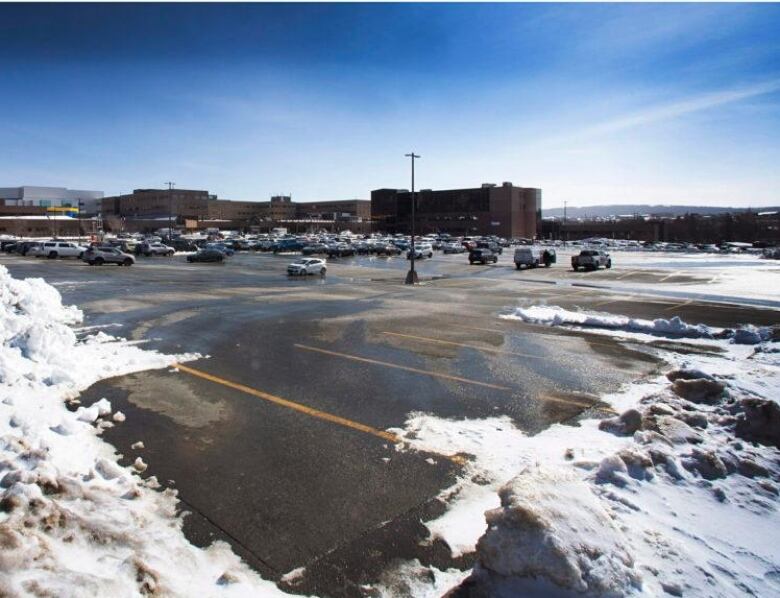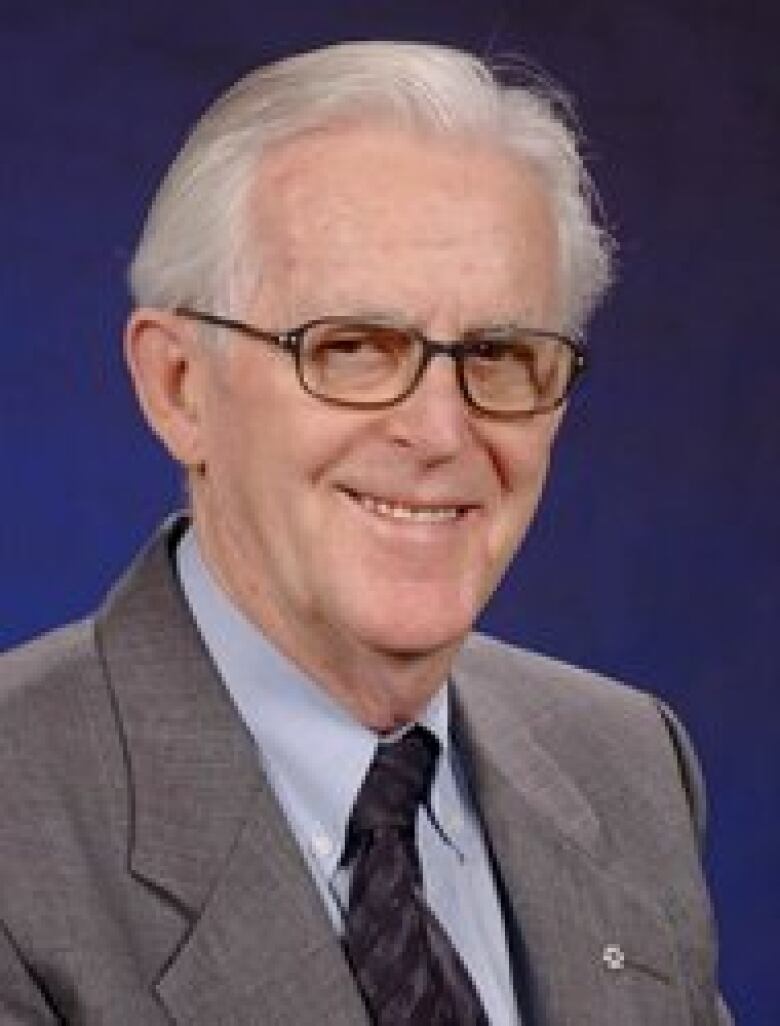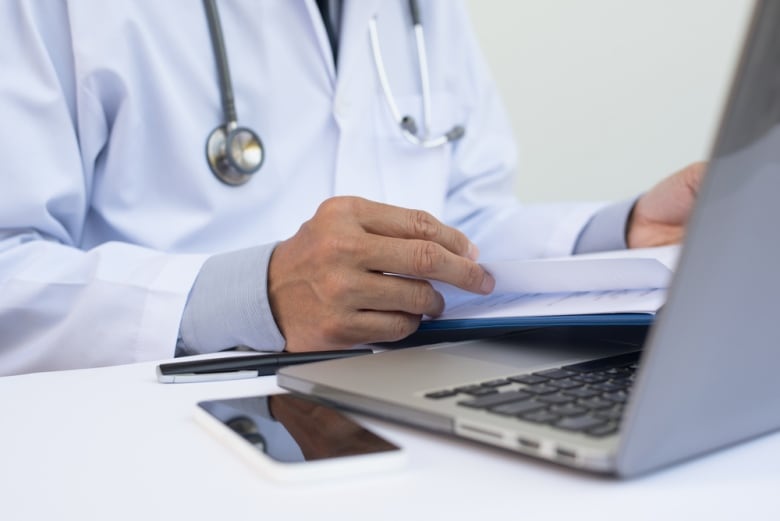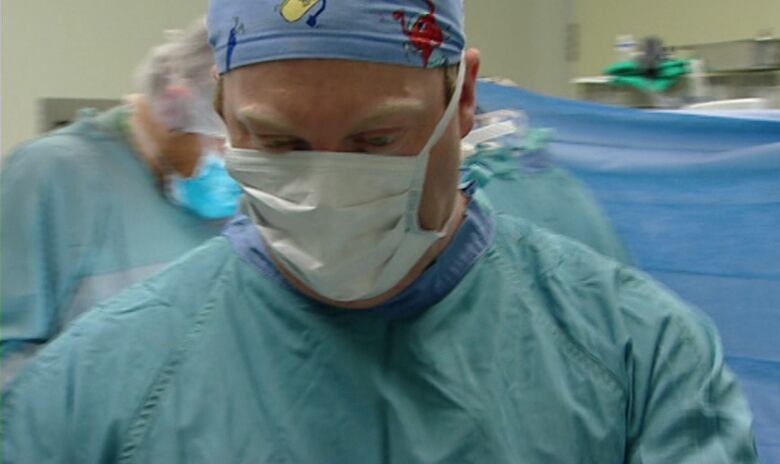The doctor will see you now (but not in person): How health care can learn from the pandemic
Telemedicine is nothing new, but we can still learn from what pioneers figured out decades ago

This column is about health care, technology, innovation and the need to do things a little differently. My mind has been on these topics a fair bit because I've been in the health-care system a bit intensively over the last few months, and I've had appointments with several doctors without leaving my home.
The COVID-19 pandemic has changed things from top to bottom, and no place more than the health system. This was brought to the fore for me in early April, when I had an appointment at the Health Sciences Centre in St. John's, and I encountered something unexpected when I entered the doors.
It wasn't exactly Checkpoint Charlie but it got my attention.
At that point in time, the number of active cases of COVID-19 in Newfoundland and Labrador was still climbing, and was several days from hitting its peak. Two more people were to die of the disease. People were on edge.
We arrived at the Health Sciences to find a parking lot that was nearly empty. The usual procedures of paying to get into the gated lots were waived; I guess it wasn'tworth it, as the demand to get in was gone. Inside, the place was eerily quiet once you got past the checkpoint.
When people arrived, they needed to check in with a makeshift station assembled close to the main entrance. Staff went to one side, patients went to the other. We were screened verbally, that is; no one took my temperature for COVID-19 symptoms and to confirm we needed to be there.
A deserted atmosphere
My appointment was going ahead because it was deemed medically necessary. As I wrote recently, I had broken my leg, and my recovery included having bandages around my surgical wound taken care of. Once cleared through the checkpoint, I checked in with registration as per usual, and made my way to the orthopedic clinic, further along the ground floor.
Along the way, I couldn't help but see how deserted things were. Not a soul was lined up at the Tim Hortons kiosk. No onewaitedto have their blood collected, no one at the nearby clinics. No one was waiting outside doctors' offices, no crowds shuffledto and fro from X-ray and other hospital departments. I saw just a couple of staff in scrubs physically distanced sitting in chairs along the walls, evidently taking a break.

The appointment itself went well. A nurse took care of my dressings, a resident did a consult, the surgeon reviewed everything. Off I went.
On that occasion, I needed to be at the hospital. Soaking in the ghost-town atmosphere of the place as I left, I actually felt more apprehensive on the way out than I had on the way in.
Because of my leg but also because of routine medical issues, I've had a series of other appointments with different doctors over the last few months, all of them by phone.
When I needed to check on something, I called my family doctor's clinic. He called back fairly promptly. A regular appointment with my allergy specialist went ahead as scheduled; rather than driving to his office, I picked up the phone in the kitchen. The other evening, a specialist whose appointment had been among the thousands cancelled called to check in all the same. My last appointment with my orthopedic surgeon was on my couch.
Not a new path at all
I was quite fine with all those circumstances: I didn't need to have samples taken or X-rays done, and I could not get over how, well, convenient it was to take care of everything over the phone. One of the doctors made a similar remark.

This is not a new path to be trod.
Newfoundland and Labrador was famously ahead of the curve in what's called telemedicine. Dr. Max House, the lateneurologist who would go on to become the province's lieutenant-governor, founded the practice from the medical school at Memorial University, with the Telemedicine Centre being formally launchedin 1976. I recall Dr. House telling me years ago that his interest in telemedicine was strongly influenced by having worked in rural Newfoundland early in his career.
In telemedicine's formative years, videoconferencing seemed likesomething you'd see in a James Bond villain's lair, or a sci-fi movie.
The infrastructure was not cheap, but it paid for itself becausethe practical applications were obvious: a patient at a rural clinic could literally be seen by a specialist in a big hospital. Excellent care was provided, and costs of travel were avoided.
During the pandemic, there have been countless stories about how Zoom and similar video apps are changing how people work. #Stayathome is not just a hashtag, but the fulcrum on which so many points of daily life and work are pivoting.
In my case, my recent interactions with physicians were all over the phone, but I honestly wouldn't have minded if any had been by video. I can see how it can help with many types of scenarios that would come before a doctor or nurse.

Much has been said about privacy concerns about Zoom, but you can lock videoconferencing down tightly. Quite a lot of expertise has been acquired in telehealth over the decades; we ought to be able to learn from it.
Moving to the 'next normal'
Earlier this week, the four health authorities said they were gradually ramping up services that had been cancelled in March when the pandemic crested. The ones mentioned prominently medical imaging, surgeries require the patient to be on site.

But as we move towards the "next normal," it seems logical to think about what can be gained from working a bit differently. How doctors get paid for telehealth was a sticking point in the past; it likely still is, for routine appointments. But these seem like problems that can be sorted, the way that all finer points of health care can.
If we can avoid needless (and sometimes prolonged) waits at a clinic, expedite referrals, save transport time and money, and make things more productive for busy clinics where new patients cannot be taken, we ought to look carefully at all the options.
I know of several businesses that are rethinking their workflow because of what they've learned the last couple of months, as old ways of working get reconsidered and people wonder if some tentative changes might work permanently.
I would think thehealth care system would be no different.













_(720p).jpg)


 OFFICIAL HD MUSIC VIDEO.jpg)
.jpg)



























































































